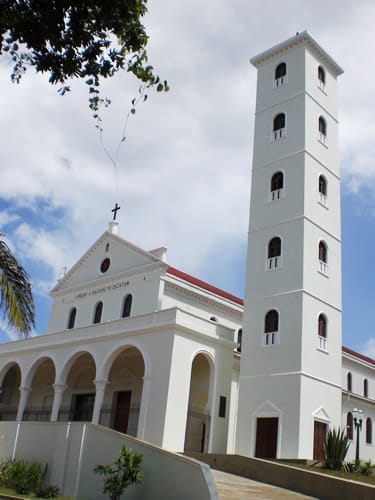BISHOP JOAQUÍN PERTÍÑEZ FERNANDEZ
Born 22-9-1952 in Monachil, Granada, Spain. Bishop of Rio Branco, Acre, Brazil
Ordained 30-5-1999
Praca a Catedral, s/n –centro
Caixa Postal 473
69908-970 Rio Branco, AC, Brazil
Tel. (55(0)68) 223 22 00/ 223 22 01
Fax (55(0)68) 223 21 01
Province
St. Nicolas of Tolentine
Year of episcopal ordination
1999
Motto
Ad maiorem dilectionem
FORMATION
Bishop Pertiñez attended primary school in Monachil (Granada), secondary school in Granada and, later, he studied pedagogy also in Granada where he obtained a teaching degree for secondary school in 1971. A year later, he entered the Order of Augustinian Recollects, a community which he had known since childhood. His family home was a close neighbor to the house of the religious in Monachil and the friars were frequent guests of his family.
He began his novitiate in Monteagudo in 1973 and the following year he made his profession of vows. At the end of his theological studies in Marcilla, he was ordained to the priesthood by Bishop Florentino Zabalza on the 16th of July, 1978.
ASSIGNMENTS
He spent the first ten years of his priesthood in Lodosa entirely dedicated to the formation of candidates to religious life. In 1988, his superiors finally accepted his repeated requests to go to the mission of Labrea to which he was assigned in the same year of 1988. He remained in the mission for the next ten years. He helped construct several urban chapels, a demonstration of his considerable artistic talent. He cooperated with the others in the initiation of the “Centro Esperanza” in Labrea. He was also religious superior in the missionaries for six years.
He left Labrea on the 30th of March of 1998 to take charge of the provincial delegation in Costa Rica located in Cartago. Hardly a year passed when, on the 24th of February of 1999, he received notice from the Holy See that he had been named bishop of Rio Branco, capital of the brazilian state of Acre. He was ordained by Bishop Moacyr Grechi on the 30th of May, 1999. Since that time, he has dedicated his labors particularly in the development of vocations and the formation of seminarians.

DIOCESE
The Diocese has an extension of 102, 136 square kilometers and a population of 464,076 (Catholics 348,000). It is divided into 26 parishes and has 13 diocesan priests, 11 permanent deacons, 9 religious priests, 5 brother religious, 92 sisters and 5 apostolic societies of missionaries.
The Diocese includes the river basins of the Acre and Purus rivers, both in the state of Acre. This zone had been populated by immigrants coming from Brazil’s northeast attracted by the rubber industry during the years 1877 to 1900. At present this is an impoverished area where the people engage, principally, in agriculture. The indigenous people of the region have struggled to claim their rights to their ancient lands with the support of various institutions.

